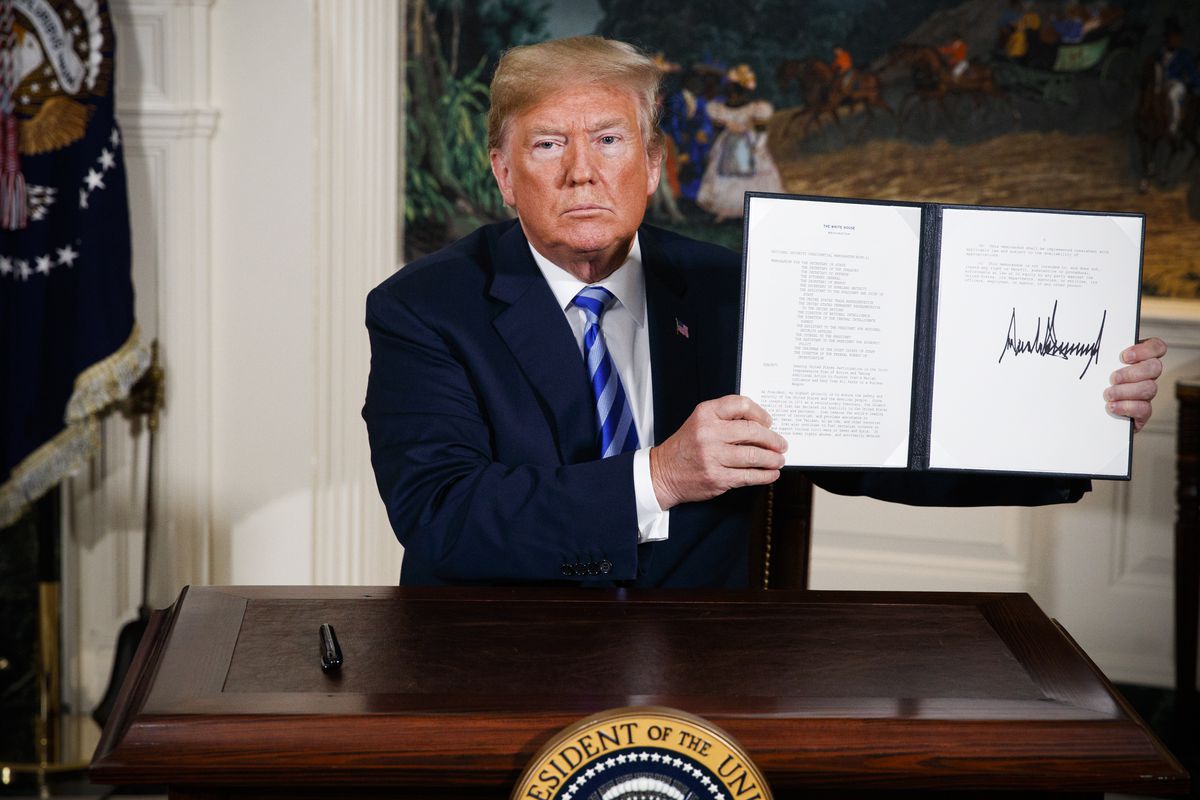- U.S. Agencies Reopen as Trump Capitulates to Pelosi in Shutdown Fight
Federal agencies affected by the 35-day partial shutdown began reopening after President Donald Trump signed a stopgap funding measure without the border wall funds he had demanded, completing his capitulation to House Speaker Nancy Pelosi.
The shutdown officially ended with Trump’s signature and the White House had instructed departments and agencies earlier in the day to begin preparations to resume normal operations. In some cases, that may take days. The Smithsonian museums and the National Zoo in Washington won’t be open to visitors until Tuesday.
The White House announced on Friday night that Trump had signed the measure.
“The government is now open,” Russ Vought, the acting director of the Office of Management and Budget said on Twitter.
His office made restoring pay and benefits to government workers a priority, but it’s not clear how quickly back pay will be distributed. “You should reopen offices in a prompt and orderly manner,” Vought said in a memorandum to department and agency heads that was included in his tweet.
The reprieve from the budget impasse may be short lived. The spending bill Trump signed only runs through Feb. 15, giving lawmakers three weeks to work out border security legislation that satisfies both parties on Capitol Hill as well as the White House. Trump expressed optimism the two sides would reach a deal, but reiterated earlier threats that he could bypass Congress and fund construction of the wall by declaring a national emergency at the southern border.
“If we don’t get a fair deal from Congress the government will either shut down on Feb. 15 again or I will use the powers afforded to me under the laws and the Constitution of the United States to address this emergency,” Trump said.
And in a tweet on Friday night he said, “I wish people would read or listen to my words on the Border Wall. This was in no way a concession. It was taking care of millions of people who were getting badly hurt by the Shutdown with the understanding that in 21 days, if no deal is done, it’s off to the races!”
The bill reflects an agreement forged hastily on Friday as the shutdown, the longest in U.S. history, began to disrupt air travel. That morning, LaGuardia Airport in New York was briefly closed because of a shortage of air traffic controllers, exacerbating flight delays across the country.
Negotiations in the Senate restarted Thursday after the chamber rejected rival plans to reopen plans from Trump and Democrats to fund the government. Trump had refused to end the impasse until he received $5.7 billion for a border wall and Democrats had refused to negotiate with him on wall funding as long as the standoff continued. Ultimately, Trump agreed to reopen the government in exchange for three weeks of bipartisan negotiations on border security.
About 800,000 federal employees were furloughed or working without pay, and many of them missed their second paycheck on Friday.
The shutdown “never should have happened,” Republican Senator Lisa Murkowski of Alaska said on the Senate floor before the vote. “We cannot mess with people’s lives this way.”
One of the many casualties of the dispute was Trump’s State of the Union address, which had been scheduled for Jan. 29. Pelosi demanded earlier this week that it be postponed until the government reopened and Trump agreed. After the agreement was reached Friday, Pelosi said she would discuss a “mutually agreeable date” after the government reopened.
Federal departments and agencies are gearing up to restart functions that were halted during the shutdown and it will take time for some to return to full speed.
Reports on gross domestic product, consumer spending, housing and trade may start trickling in, as the Commerce Department restarts the process of collecting, analyzing and releasing the figures over the next month or so, based on what happened following previous shutdowns. A similar flow of data can be expected from the Agriculture and Treasury departments, as well as the Commodity Futures Trading Commission.
At the Interior Department, which oversees grazing, drilling and recreational activity on the nation’s vast public lands, many functions can be swiftly resumed, said spokeswoman Faith Vander Voort, though employees will spend some time working through backlogs of work that accumulated during the shutdown. Among the suspended work that could be revived quickly: Consideration of endangered species and reviews of renewable power projects.
At Interior — and likely at many other federal agencies — workers may be able to get back to “normal operations” in a matter of hours or it might take days depending on the nature of their jobs, Vander Voort said.
The Internal Revenue Service, which will begin the tax filing season on Monday, has been struggling to get furloughed workers back this week, creating concern that employees could be slow to return to even after the shutdown. More than half the 26,000 workers who were recalled to this week in the Wage and Investment Division didn’t show up, and it’s unclear whether staffing will fully rebound once the government reopens.


 Naira3 weeks ago
Naira3 weeks ago
 News4 weeks ago
News4 weeks ago
 Naira4 weeks ago
Naira4 weeks ago
 Jobs3 weeks ago
Jobs3 weeks ago
 Travel3 weeks ago
Travel3 weeks ago
 Naira3 weeks ago
Naira3 weeks ago
 Naira3 weeks ago
Naira3 weeks ago
 Investment4 weeks ago
Investment4 weeks ago





























